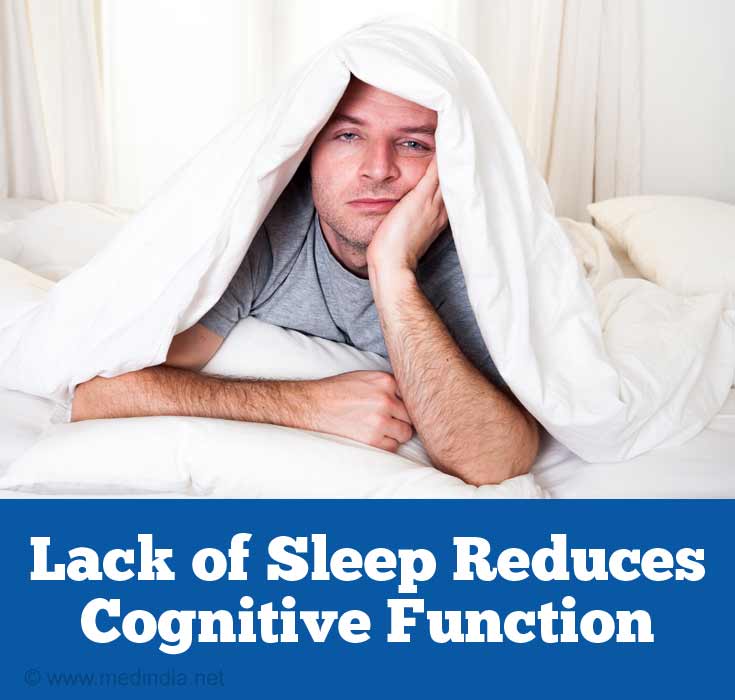- Sleep Deprivation and Deficiency - (https://www.nhlbi.nih.gov/health-topics/sleep-deprivation-and-deficiency)
- Why sleep is important - (https://www.apa.org/topics/sleep/why.aspx)
- Universitaet Tübingen. "Sleep reinforces learning: Children’s brains transform subconsciously learned material into active knowledge." ScienceDaily. ScienceDaily, 26 February 2013. - (https://www.apa.org/topics/sleep/why.aspx)
- Begos, Kevin. "Multiple Studies Confirm Importance of Good Sleep." Scientific American. 14 June 2007. Web. 30 June 2015. - (https://www.apa.org/topics/sleep/why.aspx)
What is the Importance of Sleep?
Managing with just four to five hours of sleep so that you can be more productive is not something that you should be proud of; and, it’s something that our society needs to stop viewing as a virtue. While an occasional late night and lack of sleep will cause nothing but temporary fatigue the following day, chronic sleep deprivation greatly increases the risk of numerous lifestyle diseases like diabetes, heart disease, obesity and depression.
If you really wish to live a healthy and productive life, you need to pay enough attention to not just your diet and exercise, but to sleep as well. Whether the causes of sleep deprivation are because of your personal choices or because you have trouble falling asleep, you should make an effort to address the problem. When it comes to kids, it is especially important to cultivate good sleep habits even if it means going to bed earlier than usual.

The importance of sleep is something that cannot be stressed enough, but here are some examples that demonstrate the more surprising and unexpected health benefits of sleep:
- Mental Health: Sleep deprivation has a dramatic effect on your mental and emotional wellbeing. Individuals who get less than adequate sleep are more stressed and unhappy as compared to those who sleep well, even though some of them earn less. Studies have also found that there is a higher incidence of depression, anxiety disorders and problems of low self-esteem among individuals who receive inadequate sleep.
- Weight Loss: Getting enough sleep isn’t going to stimulate weight loss or magically help you to get to your goal of reaching a healthy weight. A lack of adequate sleep however, will contribute significantly to weight gain and impede your progress. It also slows down your body metabolism.
- Better Focus: Lack of sleep can significantly impact your problem-solving skills and cognitive function. It means that you are more likely to be distracted and make poor choices that will actually impact productivity.

- Improved Performance: Lack of sleep can be quite a serious problem for anyone engaged in a high-risk job, such as those working with heavy machinery, transportation, safety or so on. It’s also critical to athletic performance and functioning, especially if your job requires some amount of motor skill or mental agility. Individuals who get adequate sleep are less likely to make poor decisions and are more likely to respond adequately to critical situations. Researchers at Stanford University found that basketball players who got extra sleep also displayed higher energy levels and improvement in sprint time and free-throw shooting!
- Look Good: Individuals who are healthier and fitter look more attractive, just as someone who is plagued by ill health and disease is more likely to appear unattractive. Studies have documented the appearance of individuals after periods of sleep deprivation, and also after getting adequate sleep. They revealed a remarkable difference in appearance. Another group of people, who were unfamiliar with the test subjects and their sleep patterns, rated the photographs. Sleep deprived individuals scored poorly on all parameters, which included health, attractiveness and fatigue levels.

- Build Muscle: Cutting down on your sleep time to make time for the gym and longer workout sessions might actually be counterproductive. If you’re committed to getting in shape and toning your muscles, don’t cut down on your sleep time. Instead reduce your working hours and TV time. Exercise promotes muscle growth as the strain that muscles are subjected to causes micro tears and this facilitates muscle growth as part of tissue repair. This repair and thickening or growth of muscles can only occur during sleep as this is when the growth hormones are released, which is why muscle atrophy is a problem in those with inadequate sleep.
- Improved Learning: Adequate sleep is essential for a child’s growth and development. According to a number of studies, including one published in Nature Neuroscience, sleep is extremely important to human beings, as during sleep the brain converts things we learn during the day into knowledge or retrievable memories. Researchers also found that this learning ability is a lot stronger in kids, and so children too require more sleep.

- Diabetes Protection: Sleeping more doesn’t actually mean that you’re not going to get diabetes, but inadequate sleep greatly increases the risk of diabetes. It doesn’t matter whether you are in the risk group for diabetes or not. Otherwise healthy adults, who do not suffer from obesity and are relatively fit, are a lot more likely to develop diabetes if they get less than the required amount of sleep.
- Addiction Problems: Alcoholism and drug addiction are becoming increasingly problematic among adolescents and poor sleep is part of the problem. Adolescents who get less sleep are more likely to develop such problems, although in many cases the sleep problems may also be a result of dependence.
- Save Money: Sleep deprivation creates a vicious cycle in many ways, as all too often, people further their careers and rise at the work place at the expense of adequate sleep. While this brings short-term monetary gains, it takes a huge toll on health and most of the consequences will be felt later. Health problems that result directly from inadequate sleep and sleep disorders result in high medical costs, not to mention the loss of productivity on account of poor health!








